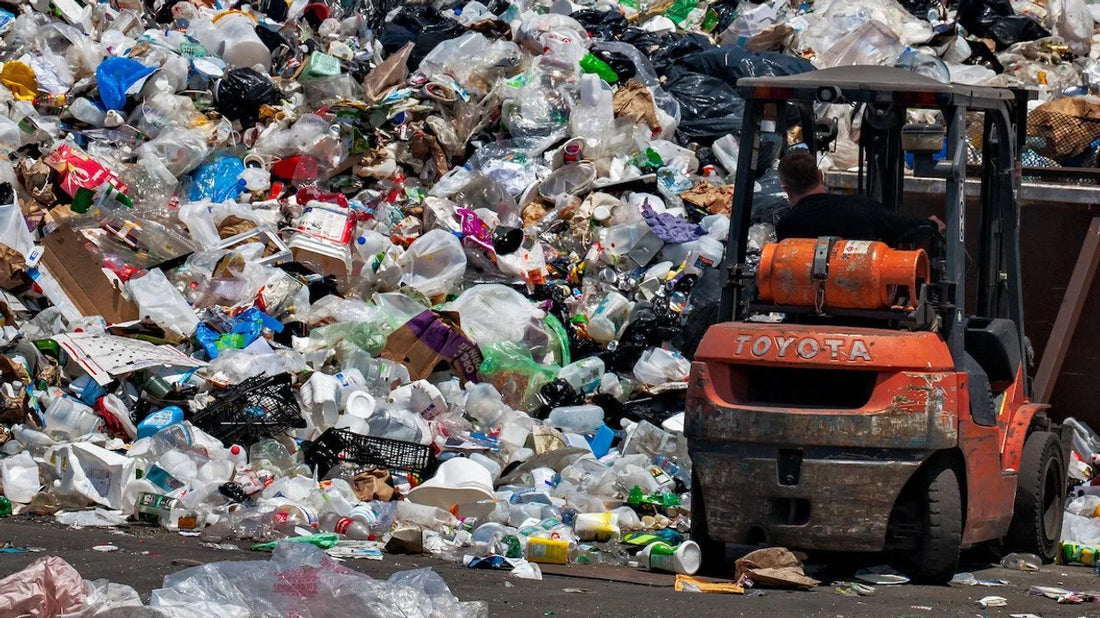This week, California filed a groundbreaking lawsuit against ExxonMobil, accusing the oil giant of misleading the public for decades about plastic recycling.
California Attorney General Rob Bonta is leading the charge, claiming Exxon falsely promoted plastic as recyclable when, in reality, most plastics end up in landfills.
For years, companies like Exxon have greenwashed their environmental impact, making consumers believe that tossing plastic into the recycling bin would do the trick.
Spoiler alert: it doesn’t. The truth is, only 9% of plastic is actually recycled, and California has been spending billions cleaning up the mess.
What makes this lawsuit historic?
It’s the first time a fossil fuel giant has been held accountable for contributing to the global plastic waste crisis. If California wins, we could see the end of plastic greenwashing as we know it.
Judith Enck, president of the advocacy group Beyond Plastics, called it “the single most consequential lawsuit filed against the plastics industry.”
This is also a great win for independent journalism. The lawsuit cites reporting from independent, reader-funded journalism like HEATED, proving that grassroots journalism is playing a vital role in holding corporations accountable.
This could be a turning point in the plastic waste crisis. It could set a new standard for corporate responsibility and honesty, and put an end to decades of deception.
What's Exxon's response?
ExxonMobil has typically denied accusations related to greenwashing. In response to previous similar allegations, the company has defended its environmental efforts, stating that it supports advanced recycling technologies and initiatives aimed at reducing plastic waste.
ExxonMobil often highlights its investments in innovations that convert used plastics into raw materials for new products, framing its approach as part of the solution to the plastic waste crisis.
However, in cases like this, where a lawsuit is involved, Exxon is likely to argue that they’ve been transparent about the challenges of recycling and committed to finding long-term solutions.
They may also claim that the responsibility for plastic waste management falls on multiple parties, including governments, consumers, and the recycling industry itself. As of now, though, their specific response to this new lawsuit has not been reported on.
What's the impact on other companies?
The lawsuit against ExxonMobil could have a significant ripple effect on other companies, especially within the fossil fuel and plastics industries. Here's how:
1. Increased Scrutiny on Greenwashing: If California’s case is successful, it could open the floodgates for more lawsuits targeting companies that mislead the public about the recyclability or environmental impact of their products. Companies across sectors, from packaging to consumer goods, may face increased scrutiny and pressure to be more transparent about their sustainability claims.
2. Regulatory Pressure: Other states or even countries may follow California’s lead, introducing stricter regulations and legal frameworks to hold corporations accountable for greenwashing and plastic waste. This could lead to more companies being required to provide accurate information about their products' environmental impact.
3. Shift Toward Sustainable Materials: Facing potential legal and reputational risks, companies might accelerate their transition to sustainable packaging alternatives or invest more heavily in genuinely recyclable and eco-friendly materials. The lawsuit could serve as a wake-up call, pushing corporations to align with truly sustainable practices instead of just marketing themselves as “green.”
Ultimately, the Exxon lawsuit has the potential to set a precedent that forces other corporations to stop greenwashing, rethink their environmental messaging, and make real changes to their sustainability practices.
----
If you'd like to reduce your plastic-use and carbon footprint check out Weightless Laundry and Dishwasher Sheets >>

